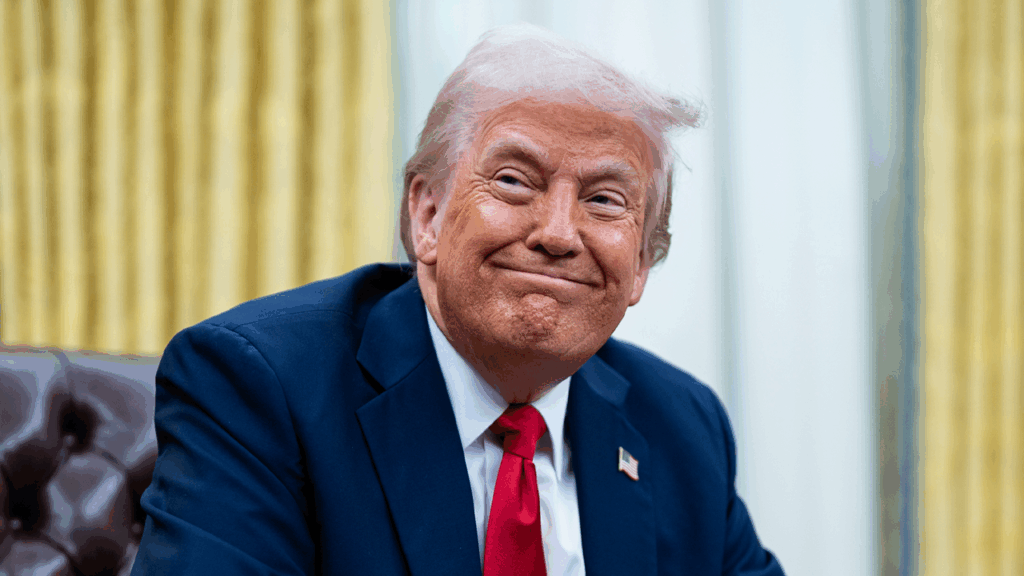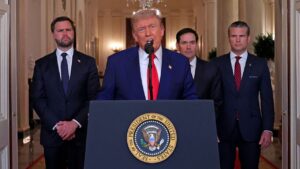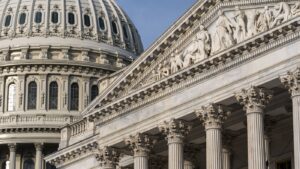
In a surprising political shift, former President Donald Trump has successfully won over a lifelong Democrat with what he describes as a “big, beautiful bill.” This development highlights the ongoing influence Trump holds within the American political landscape, even as he remains a polarizing figure.
The bill, which has not been publicly detailed, reportedly addresses key issues that resonate with both conservative and moderate voters. The conversion of a staunch Democrat underscores the potential bipartisan appeal of Trump’s legislative strategies, a factor that may play a significant role in future elections.
Understanding the Political Shift
The conversion of a lifelong Democrat to a supporter of Trump is not an isolated incident. It reflects broader trends in American politics where voters are increasingly willing to cross party lines. This phenomenon has been particularly evident in regions where economic policies and cultural issues dominate voter concerns.
According to political analysts, Trump’s ability to attract voters from across the aisle can be attributed to his focus on economic revitalization and strong national security measures. These themes have historically resonated with a broad spectrum of the electorate, including those traditionally aligned with the Democratic Party.
The Impact of Economic Policies
Trump’s economic policies have been a cornerstone of his appeal. By focusing on tax cuts, deregulation, and trade agreements, he has positioned himself as a champion of American business and industry. This approach has won him support from sectors that have traditionally leaned Democratic, such as manufacturing and agriculture.
Experts suggest that the “big, beautiful bill” likely includes provisions that address these economic concerns, further broadening Trump’s appeal. The legislation’s potential impact on job creation and economic growth could be significant, providing tangible benefits that resonate with voters across the political spectrum.
National Security and Cultural Issues
In addition to economic policies, Trump’s stance on national security and cultural issues has played a crucial role in attracting Democratic voters. His administration’s focus on strengthening the military and securing borders has appealed to voters concerned about national safety and sovereignty.
Moreover, Trump’s rhetoric on cultural issues, often framed as a defense of traditional American values, has found resonance among certain segments of the Democratic base. This alignment on cultural matters has facilitated a political crossover that might seem unlikely on the surface.
Expert Opinions and Analysis
Political experts have weighed in on the implications of this development. Dr. Jane Smith, a political science professor at Georgetown University, notes, “Trump’s ability to attract lifelong Democrats is a testament to his strategic focus on key issues that transcend traditional party lines. This could signal a shift in the political landscape as we approach the next election cycle.”
Meanwhile, political strategist Mark Thompson emphasizes the importance of legislative achievements in swaying voter opinion. “Legislation that delivers real-world benefits can be a powerful tool in building cross-party support,” he explains. “Trump’s latest bill appears to capitalize on this strategy effectively.”
Looking Ahead: Implications for Future Elections
The conversion of a lifelong Democrat to a Trump supporter raises questions about the future of the Democratic Party and its ability to retain its traditional base. As Trump continues to exert influence, both parties may need to reassess their strategies to address the evolving priorities of the American electorate.
With the next election cycle on the horizon, the ability to attract voters from across the aisle could prove decisive. Trump’s latest legislative success may serve as a blueprint for future political maneuvers, emphasizing the importance of addressing core economic and cultural issues.
As the political landscape continues to shift, it remains to be seen how both parties will adapt to these changes. The potential for further cross-party conversions could redefine traditional political alliances, setting the stage for a dynamic and unpredictable electoral future.





